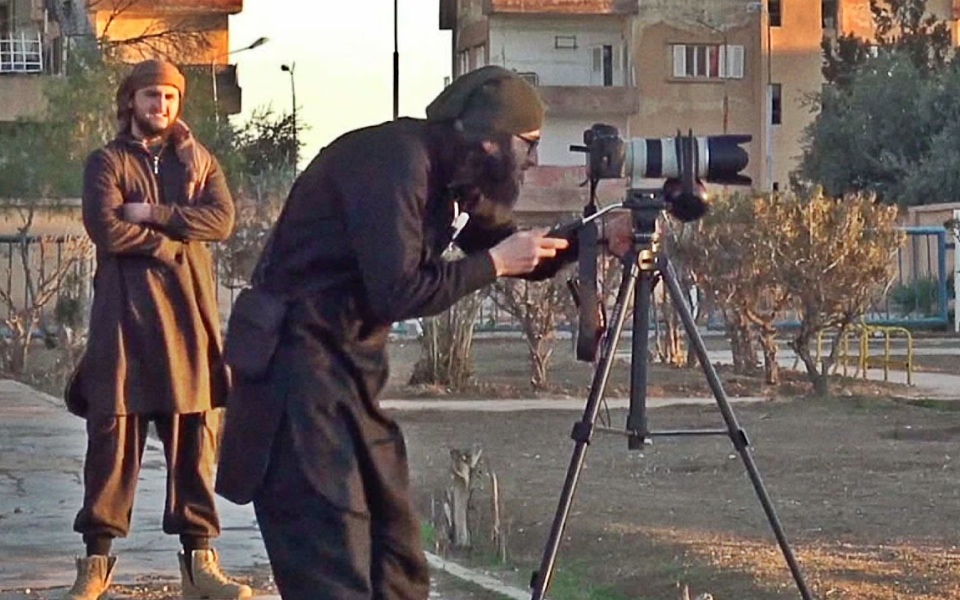City of Ghosts film review: An important documentary held back by lumbering, artless direction

In 2013, after ISIS took control of Raqqa, a group of citizen journalists began secretly recording and publishing their activities.
Calling themselves Raqqa Is Being Slaughtered Silently (RBSS), the group formed to counter ISIS’s slick propaganda machine, and deliver the truth about their atrocities to the world. Much of what we know about ISIS’s barbarism is a result of their activities.
RBSS is a remarkable organization, one deserving of testament, and the film is worth watching on this basis alone. It follows a number of activists who have fled to Turkey and Germany, and details how even abroad they live under the constant threat of execution.
Director Matthew Heineman clearly has the trust of his subjects, and is given access to their most intimate moments. These are the most rewarding scenes; showing the emotional toll of their work, or their poignant efforts to live normally in spite of it. However, too often their story is muddied by lumbering, artless direction.
This is clear in the opening and closing scenes, which show the RBSS members receiving a press freedom award in New York. It’s a confusing framing device, seemingly included to allow Heineman to both exalt his own profession and signal to the audience that RBSS has the approval of the western journalistic establishment.
Heineman’s Cartel Land established him as one of the most exciting young documentary-makers around, but his outstanding attribute here is a thumping absence of nuance. We see more ISIS propaganda than we do RBSS footage; an uncomfortable discrepancy compounded by a scene in which two of the activists watch a video of their father being murdered.
I was reminded here of Werner Herzog in Grizzly Man, instructing a mother not to listen to the audio of her son’s death, having just listened to the recording himself. Heineman might take note of Herzog’s documentaries – not just to grasp that some grief should remain private, but also that the role of the documentarian goes beyond simply presenting what he is given.
Perhaps overwhelmed by his subject, Heineman can only present. He doesn’t evoke, or reflect, he has little grasp of audience response or understanding that sometimes discretion is the better part of valour. The RBSS activists are undoubtedly inspiring, their journey is harrowing, and their story is urgent and worth telling. It’s just a shame that it didn’t have a better messenger.